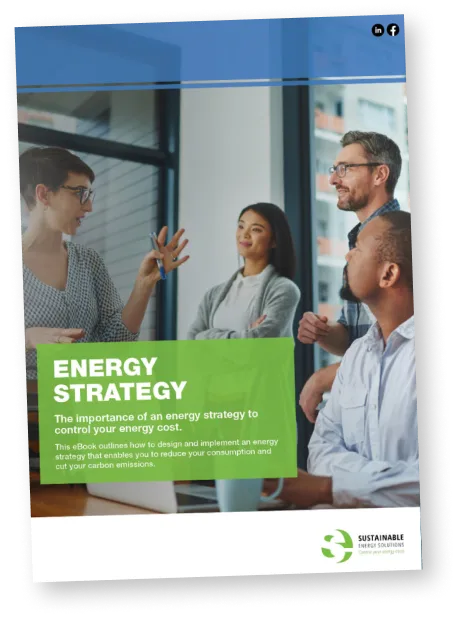Read our latest article by Luigi Taddeo, our Energy Efficiency Solutions Manager, on what to avoid when investing in a solar system.
Five pitfalls to avoid when buying Commercial Solar
Knowing what to look out for when investing in solar for your business is paramount.
Here we have listed just some of the common pitfalls a business can face:
Pitfall 1. Not engaging your legal advisor and accountant early in your solar journey.
Avoid lengthy hold-ups by getting your internal stakeholders in the project early. You will need your accountant across your finance options (i.e. Outright Purchase, Power Purchase Agreement PPA, Capital Lease, Operating Lease); and your legal advisor will need to be across your contract so it is amended to suit your business needs and ensure the distribution of risk is fair and reasonable.
Having your legal advisor on board early will allow them to ensure the scope of work is detailed, your contract includes a very clear definition for practical completion – a major payment milestone (this may require a liquidated damage clause and rate). As well as other standard contract clauses, they will need to ensure your contract is crystal clear on what is included and excluded in your solar project to help minimise variations and other potential issues.
Pitfall 2. Not planning for future growth in your electrical demand
When deciding on your solar system, remember to consider your future energy needs. If your business plans on expansion or perhaps providing on-site electric vehicle charging, it may be ideal to oversize your solar system now. Oversizing may not only help avoid future electrical capacity upgrades which can be very expensive, feeding excess energy to the grid could form part of your company’s carbon reduction strategy or net zero targets, as an alternative to purchasing carbon offsets.
Pitfall 3. Choosing a solar retailer without the right experience for the job
The solar retailer you choose should have demonstrated extensive experience and capability in design, contracting and delivering solar projects. Preferably this will be in projects with similar features to your own, as highlighted below:
- Geographical coverage: Relevant to your project locality and electricity network authority
- Solar array type: Roof mounted, ground mounted, car park, floating solar
- System size: Small (~10 to 100 kW), medium (100 to 1000 kW), large (>1 MW)
- System type: Grid-connected, off-grid, embedded network, microgrid
- Additional features: Battery energy storage, power factor correction, EV charging
- Contract type: Outright purchase, power purchase agreement, lease, rental
Depending on the size, nature and complexity of your solar project and the ongoing services you require, you may need a solar retailer who has additional capabilities. These may include:
- Project management
- Local planning and development approvals
- System performance monitoring
- Fault or underperformance detection and reactive maintenance
- Planned maintenance and cleaning
Whilst relevant experience is vital, other considerations for choosing a suitable solar retailer include their:
- Capacity to get the job done within your timeframes
- Finances – performing a credit check to ensure they can continue to honour your warranty period and other contractual obligations
- Insurances – are they adequate and up-to-date
- Years of experience – how long have they been in operation
- Recent solar projects – were their clients happy with their work. Customer feedback trumps glossy brochures and sales pitches.
Pitfall 4. Not insisting on a mandatory site inspection during the tendering period by those shortlisted
Is the solution proposed actually feasible? Taking into consideration for example: the roof structure, geotechnical assessment, electrical infrastructure & network approval.
In some cases, we recommend completing the necessary checks outlined in this article by Beam Solar, prior to tendering to reduce uncertainty and project risk (we can help you complete all the required checks). In all cases, we generally recommend mandatory site inspections to be completed by shortlisted solar retailers during the tendering period.
Pitfall 5. Ensuring the quoted price reflects the quality of the equipment offered?
You don’t want to end up paying more than what you should when it comes to equipment as there is a trade-off between quality and price. As part of our procurement process, we score equipment such as solar modules, inverters and batteries using a range of industry accepted data.
If you want confidence in the investment you are making, we recommend you follow a competitive process for procurement, installation and associated services.
By partnering with our team of solar experts, we can complete a comprehensive assessment of your site(s) and energy needs using our solar assessment platform. Our next step is to request quotes from several pre-qualified Solar Retailers (who are rigorously vetted) and provide your team with an objective comparison of offers.
Our team will then assist you to procure your desired system and manage a seamless installation to ensure your solar is installed and operated to a high standard. By using our independent end-to-end service, your business will have confidence in the retailer, solar product, quality of the installation and warranty.
Let’s talk solar today
Discuss your solar needs today with our team by filling out our form or calling us on (02) 9371 4153.
Disclaimer: The information contained in this article is for general information purposes only and is not intended to constitute legal or accounting advice, or recommendations of any kind and should not be used as a substitute for consultation with your legal advisor or accountant.
